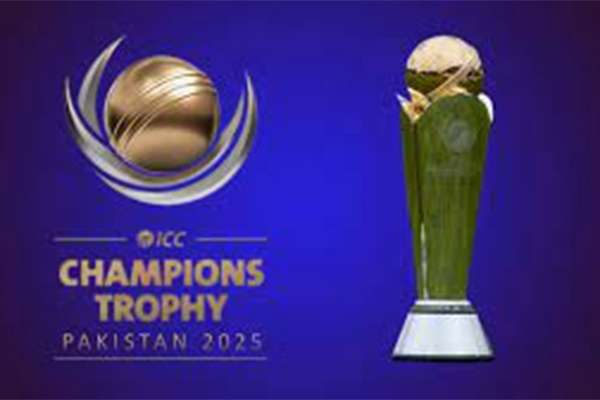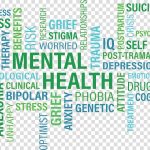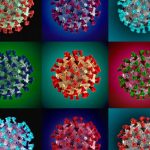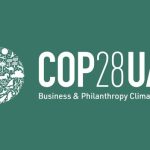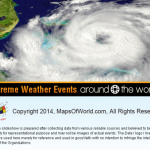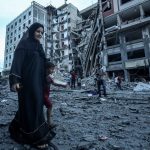BBRIDGING THE GAPE: HOW MATHEMETICS EDUCATION AT IDA RIEU COLLEGE PREPARES STUDENTS WITH VISUAL IMPAIRMENT FOR SUCCESS IN NED UNIVERSITY:
BRIDGING THE GAPE: HOW MATHEMETICS EDUCATION AT IDA RIEU COLLEGE PREPARES STUDENTS WITH VISUAL IMPAIRMENT FOR SUCCESS IN NED UNIVERSITY:
ABSTRACT:
Mathematics education is one of the most important fields in today’s educational landscape particularly in fields like computer science, engineering, and business etc. It fosters critical thinking and problem-solving skills in students. However, Students with visual impairment encounter various challenges in their educational fields due to a lack of accessible material. Ida Rieu School and College are one of the well-known organizations, that provide quality education to students with visual impairment. This article explores how Ida Rieu College took the initiative to prepare its students to succeed at NED University. The primary objective of this article is to identify challenges faced by students of Ida Rieu College in studying mathematics. The major issue highlighted are lack of assistive technology. The available technology is very expensive and unaffordable for students. Books are not available in braille and teachers are not familiar with braille language. In using computers and laptops, students face accessibility challenges with screen readers.

INTRODUCTION:
Mathematics education is essential in developing problem-solving skills and analytical thinking. For students with visual impairments, specialized teaching strategies are crucial to ensure that they can excel in this subject. Ida Rieu College, well-known for its dedicated approach to educating visually impaired students, has implemented a robust mathematics curriculum that not only bridges the educational gap but also prepares its students for higher education at renowned institutions like NED University. Ida Rieu College’s specialized curriculum and teaching methods address the unique needs of visually impaired students, utilizing adaptive technologies and tactile learning tools to enhance understanding and engagement (Karimi, 2020). The college’s commitment to inclusive education is reflected in its students’ achievements, with many alumni excelling in competitive academic environments. At NED University, these students continue to thrive, leveraging the strong mathematical foundation provided by Ida Rieu College to succeed in demanding engineering programs (Ahmed & Khan, 2021). This article explores the methodologies used at Ida Rieu College and their impact on the success of visually impaired students in higher education.
OBJECTIVES:
This article aims
- To highlight the methodologies adopted by Ida Rieu College to teach mathematics education to students with visual impairment.
- To identify the challenges faced by students of Ida Rieu College in studying mathematics education.
- To identify the challenges faced by teachers of Ida Rieu College in teaching mathematics education to students with visual impairment.
- To highlight the assistive technology devices and tools utilized by the teachers and students of Ida Rieu College for mathematics education.
BACKGROUND INFORMATION:
UNDERSTANDING VISUAL IMPAIRMENT:
Visual impairment refers to a significant limitation in one’s vision that cannot be fully corrected with standard glasses, contact lenses, medication, or surgery. It includes a range of vision problems, from mild visual loss to complete blindness. According to the World Health Organization (WHO), visual impairment encompasses both low vision and blindness, where low vision is defined as a best-corrected visual acuity of less than 6/18 but equal to or better than 3/60 in the better eye, and blindness is defined as a best-corrected visual acuity of less than 3/60 in the better eye (World Health Organization, 2019). In Pakistan, Visual impairment is a major health issue. According to the current study, it is estimated that around 12.5 million people in Pakistan are visually impaired, which includes both low vision and blindness. Of these, approximately 1.12 million people are blind. The major issues of visual impairment reported in Pakistan are cataracts, uncorrected refractive errors, corneal opacity, glaucoma, and diabetic retinopathy (Saeed et al., 2021).
HISTORY OF IDA RIEU COLLEGE:
The Ida Rieu School and College for the Blind and Deaf, located in Karachi, Pakistan, has a long and impactful history dedicated to serving students with visual and hearing impairments. The institution was established by a French woman named Ida Rieu in 1923. Her vision was to promote a supportive educational environment for blind and deaf persons. At first, the school was dependent on donations and support from the local community and philanthropic organizations due to limited resources. With the passage of time, school expanded its services and programs by providing vocational training alongside traditional academics to better equip students for independent living and employment.
The school became a foundation in the region by incorporating Braille for the blind and sign language for the deaf, ensuring that students had access to effective communication and learning tools.
1970s-1980s: Significant developments were made in the infrastructure of the institution, including the construction of new classrooms, dormitories, and specialized training centers. Modernized curriculum was adopted. The school began integrating computer training and other technological aids to enhance learning experiences for blind and deaf students.
Today, the Ida Rieu School and College offer a wide range of services and facilities, including primary, secondary, and higher secondary education, along with vocational training programs. It also offers counseling and rehabilitation services to support the overall well-being of its students. The school and college have gained national and international recognition for their contributions to the education and empowerment of individuals with visual and hearing impairments. The students of Ida Rieu School and College are taking part in different national and international competitions to promote inclusion. The major role that Ida Rieu College is playing, that is teaching mathematics education to prepare students with visual impairment for success at NED University.
TEACHING MATHEMATICS EDUCATION:
In the United States, six principles were developed for teachers to teach mathematics to students. These principles are equity, curriculum teaching, learning, assessment, and technology. Equity in the mathematics classroom means teaching all students equally so that they would be able to fulfill their learning needs (Bayram, et al 2015). Students who use braille are less likely to participate in advanced mathematics and their performance is below that of other subjects. One of the major reasons for this is that mathematics books have many visual concepts that are unavailable in either braille format. Graphs, charts, and diagrams are used for large data that is inaccessible to students with visual impairment (Klingenberg, O. G., Holkesvik, A. H., & Augestad, L. B. 2019).
METHODOLOGY ADAPTED BY IDA RIEU COLLEGE:
Ida Rieu College employs a variety of innovative teaching methods tailored to the unique needs of students with visual impairment. One significant approach is the use of tactile learning tools. These include braille textbooks, and tactile graphs, which help students grasp complex mathematical concepts through touch. The college also integrates technology, providing access to screen-reading software such as NVDA and Excel and electronic braille displays such as Orbit Reader enabling students to engage with digital mathematical content effectively (Smith, 2020).
CHALLENGES FACED BY STUDENTS AND TEACHERS:
Despite the supportive environment at Ida Rieu College, students with visual impairment face various challenges in learning mathematics. One of the major challenges is the lack of technology. Braille devices are costly and not available in Pakistan. No graphical concepts are available in braille to facilitate students in getting the concepts of charts and graphs. Audio calculators are not supportive of advanced functions of mathematics. Teachers also face difficulty while teaching mathematics to students with visual impairment because a visually impaired student takes more time to understand the concepts as compared to a sighted student. Another challenge that students and teachers face is that teachers are not specially trained to teach students with visual impairments. Teachers don’t know braille that’s why, students with visual impairment are supposed to do mathematics by using laptops. As a result, students face accessibility challenges with screen readers in understanding mathematical symbols.
COLLABORATION WITH NED UNIVERSITY:
After facing these challenges, Ida Rieu College is committed to looking forward to their students for a bright future. Ida Rieu College promotes a collaborative relationship with NED University, ensuring a smooth transition for students advancing to higher education. This partnership includes regular consultations to align the college’s curriculum with university standards and requirements. Moreover, NED University provides additional support services, including orientation programs and academic accommodations, to help the success of students with visual impairments (Khan, 2021). The effectiveness of Ida Rieu College’s mathematics education is evident in the success stories of its students. Many students have transitioned to NED University and excelled in their respective fields. For Instance, Saad Rehman, Muhammad Huzaifa, and Sameed Shaikh Are the brilliant students of Ida Rieu College. The hard work and dedication of these students make their admission possible to NED University. Such achievements highlight the critical role of specialized education in empowering students with visual impairment.
CONCLUSION:
Despite the advancements in technology, accessibility issues remain a significant barrier for students with visual impairments. However, disability can never stop anyone from achieving their goals. The success of students from Ida Rieu College in learning mathematics and their accomplishments at NED University is a testament to the hard work and dedication of both the students and their teachers.
RECOMMENDATIONS:
To promote a more inclusive environment, and support students with visual impairment to take part in advanced fields of higher education, the government should support these colleges in providing assistive technology and services needed to teach students with visual impairment. Advanced and scientific devices should be developed to make these fields accessible for these students. It should be the responsibility of the government and different funding agencies to minimize the cost of special devices and learning tools for students with visual impairment.
REFERENCES:
Ahmed, S., & Khan, R. (2021). Transition experiences of visually impaired students from Ida Rieu College to NED University. Journal of Inclusive Education, 15(2), 123-138.
Bayram, G. İ., Corlu, M. S., Aydın, E., Ortaçtepe, D., & Alapala, B. (2015). An exploratory study of visually impaired students’ perceptions of inclusive mathematics education. British Journal of Visual Impairment, 33(3), 212-219.
Karimi, H. (2020). Adaptive learning technologies for visually impaired students in mathematics education. International Journal of Educational Technology, 9(3), 101-115.
Khan, A. (2021). Enhancing academic support for visually impaired students in higher education. Education Today, 29(3), 134-145.
Klingenberg, O. G., Holkesvik, A. H., & Augestad, L. B. (2019). Research evidence for mathematics education for students with visual impairment: A systematic review. Cogent Education, 6(1), 1626322.
Saeed, A., Akram, M., Ahmed, A., Butt, N. H., & Ayub, M. (2021). Prevalence and causes of blindness and visual impairment; an evidence from Pakistan, the Pakistan National Blindness and Visual Impairment Survey 2019. Pakistan Journal of Ophthalmology, 37(2), 83-88. https://doi.org/10.36351/pjo.v37i2.1195
World Health Organization. (2019). World report on vision. World Health Organization.
Author: Mahnoor Irshad
Student of M.Phil. at University of Karachi Special Education Department
mahnoorirshad775@gmail.com
Supervisor: DR. Shaista Naz
Assistant professor at University of Karachi Special Education Department
Shaistanaz69@gmail.com

